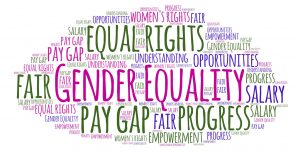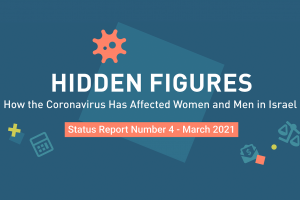The national budget of Israel for fiscal years 2011 and 2012 was approved by the Knesset at the end of December 2010. It appears that the budget approved is far from final, as two factors are expected to lead to an increase in the budget in the course of the coming year. The first is … Continue reading Through a Gender Lens 2011/2012
The national budget of Israel for fiscal years 2011 and 2012 was approved by the Knesset at the end of December 2010. It appears that the budget approved is far from final, as two factors are expected to lead to an increase in the budget in the course of the coming year. The first is a new salary agreement for public service employees, including port workers, high school teachers, and state attorneys. This new agreement will be good news for public service employees in general and for women in particular, as women comprise the majority of teachers as well as of state attorneys. The second factor that will change the budget just approved is the increment that the Knesset is expected to approve for the Ministry of Defense budget. The Minister of Defense asked for an additional NIS 10 billion for his ministry. The amount approved was NIS 54.4 billion, which involved an increase of some four billion shekels. However, the Minister of Defense reported that certain “understandings” had been reached between the Prime Minister and himself regarding additional allocations that the Ministry of Defense would receive in the course of the 2011 fiscal year, to be taken from reserve monies and from budgets not fully utilized by other ministries (Avital, December 22, 2010).
From a gender perspective, the national budget for fiscal 2011-2012 does not augur much that is new. The tax policy that widens social gaps in general and gender gaps in particular will continue to be in force during the next two years. The tax-cutting program for income and corporate taxes is to continue up to 2016, while indirect taxes are to increase. While most Israeli women will not benefit from reductions in direct taxation, all of them will carry some of the burden of higher indirect taxes, including the VAT and the gasoline tax.
The across-the-board cuts in social services budgets will also continue. Women constitute two-thirds of public employees, and the reductions in social service budgets, a good portion of which are designated for salaries, may result either in women being laid off or in their having to work for less.
This document offers a gender analysis of the implications of the national budget approved for fiscal years 2011 and 2012 on women in Israel. An analysis of income and expenditures from the perspective of gender equality will enable us to better understand how economic decisions affect women and men in different ways. In addition, it will allow us to determine to what extent economic and budget policy contribute to the widening or narrowing of gender inequality.




